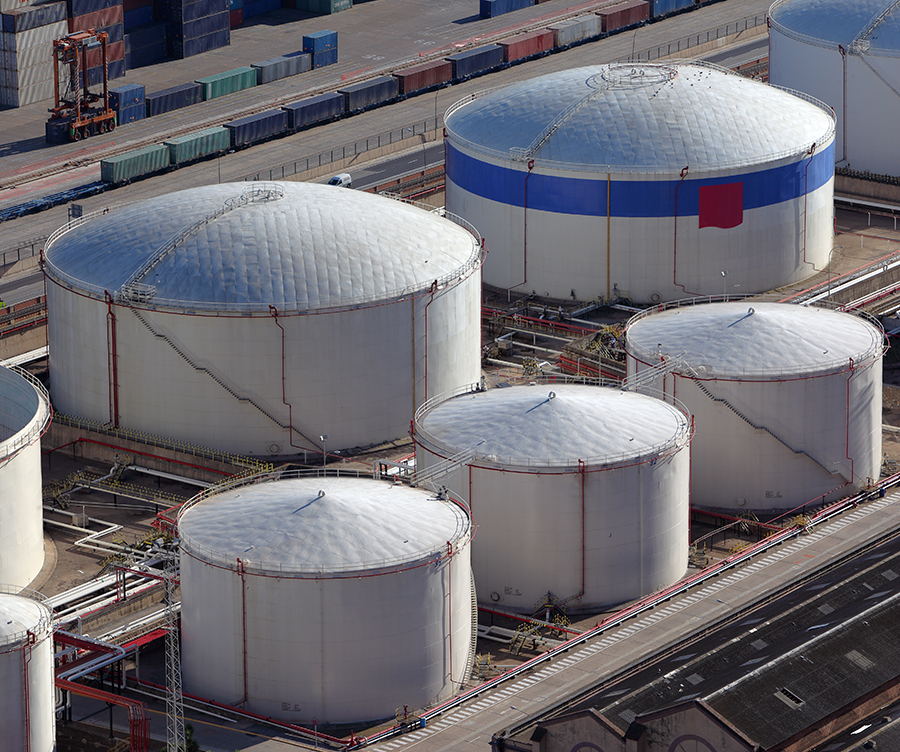The US was the G7’s largest importer of oil products produced from Russian crude last year, research shows, as legislators and campaign groups renew calls to expand sanctions to refineries that buy from Russia.
European and US sanctions prohibit companies from importing crude oil and petroleum products directly from Russia, but there are no restrictions on purchasing oil products from elsewhere even if they were refined from Russian crude oil – an arrangement described by campaigners as a “sanctions loophole”.
A report published this week by the Centre for Research on Energy and Clean Air (CREA), a non-profit organisation that tracks the flow of Russian oil, finds that the volume of such oil imports rose 44% year-on-year to countries in the oil price cap coalition.
The US was the coalition’s largest buyer of products made from Russian crude, with imports totalling an estimated €1.6bn, it says. The Netherlands, France and Italy imported a combined total of €1.3bn of Russian-origin oil products, with the overall figure across the EU standing at €2.6bn.
“This analysis shows a widening in the refining loophole in 2023, expanding the gaps in the sanctions on Russia and enabling higher quantities of oil made from Russian crude to be used in countries that are considered to be Ukraine’s allies,” CREA says.
The report identifies several refineries in India and Turkey, as well as one in Bulgaria and one in China, as major suppliers to Europe and the US.
It names India’s Jamnagar refinery as both the largest importer of Russian crude and largest exporter of oil products to price cap countries.
In value terms, the rise in exports is only equivalent to around a 6% hike since 2022, due to a significant drop in oil prices.
In the report, CREA reiterates its call to ban imports of oil products made from Russian crude. Doing so could dent the Kremlin’s tax revenue by discouraging imports to non-price cap countries and force Russia to lower the price of oil it sells, it argues.
Authorities in the EU previously told GTR they believe such flows go against the aim of the bloc’s sanctions regime and that work is underway to reduce Russia’s revenues further, but so far no restrictions have been brought in that target refineries.
In the US, a bipartisan bill introduced by representatives Lloyd Doggett and Joe Wilson would prohibit imports of oil products from any refinery that buys crude oil from Russia. The proposals are currently being reviewed by a House committee.
Responding to the CREA findings, Doggett tells GTR: “American consumers continue to unknowingly oil Putin’s war machine with purchases of Russian oil.
“As the sponsor of legislation banning Russian oil, I am seeking to plug the loophole that continues to authorise the importation of laundered Russian petroleum products.”
The issue is also the subject of an open letter to EU and G7 leaders published by CREA on February 21 and signed by nearly 300 non-government organisations and campaign groups.
“The ‘refining loophole’ legally allows Russian oil to be processed and flow into the EU and G7 countries, preserving Russian export volumes and earnings,” the letter says, urging authorities to “close all loopholes in existing sanctions”.
It also calls for a ban on all LNG imports from Russia, and to prohibit transhipment of LNG at European ports.
Other suggested measures include lowering the price cap to US$30 per barrel, from the current rate of US$60, along with a greater focus on enforcement.
The letter adds the EU and G7 should introduce a programme to verify whether tankers in their waters have spill insurance, in a bid to tackle Russia’s fleet of shadow vessels – many of which are ageing and pose a risk of environmental damage.
“We underscore that tightening sanctions against Russian oil and gas exports isn’t just about ending a war – it’s about dismantling the foundation that enables autocracy to thrive,” the letter says.
“It’s a global imperative to foster energy independence, peace, climate action and democratic resilience.”







